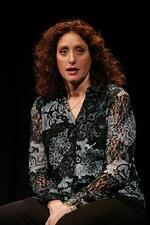
Judy Gold
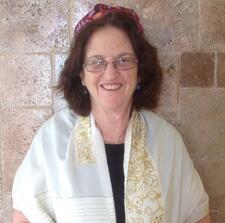
Miri Gold

Carrie Goldberg
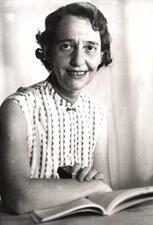
Lea Goldberg
Esther Schiff Goldfrank
Although she never earned a degree in anthropology or taught a class, Esther Schiff Goldfrank made significant contributions to the field through her studies of communities as disparate as Pueblo Indians and New Yorkers.
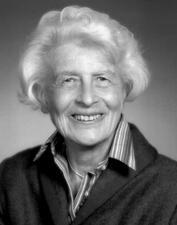
Gertrude Scharff Goldhaber
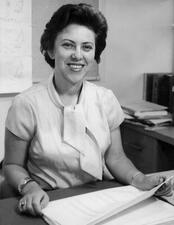
Sulamith Goldhaber
Sulamith Goldhaber’s family immigrated from Vienna to Palestine, and Goldhaber later moved to the United States to complete her education and begin her career. Her pioneering work with particle accelerators put her at the forefront of a seismic shift in the research of particle physics. She was also renowned for her work concerning nuclear emulsions.
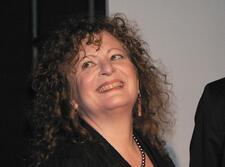
Nan Goldin
Starting in the 1970s, Nan Goldin used her camera to document her own life and that of her friends, her alternative family. Her pictures revealed intimacy and violence, love and abuse, sexuality and addiction, in the downtown punk scene of New York in the 1980s, a world subsequently devastated by AIDS. She adopted a slide show format to be a mirror to her friends, and ended up mirroring their lives to the outside world.
Emma Goldman
Emma Goldman was a potent voice of anarchism in North America and Europe in the early twentieth century, and her controversial beliefs made her many powerful enemies. Yet even after enduring many contentious interactions with law enforcement, Goldman continued to speak, write, and teach on freedom and individual rights, inspiring her followers to question authority at every turn.
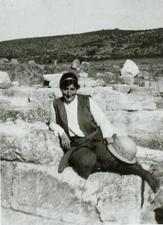
Hetty Goldman
Hetty Goldman was one of the most distinguished American archaeologists in the early twentieth century, the first woman appointed to direct an archaeological excavation by the Archaeological Institute of America and the first woman professor at Princeton’s Institute for Advanced Study.
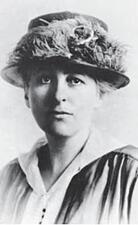
Josephine Clara Goldmark
Josephine Goldmark laid the groundwork for transforming American labor laws by amassing data that forced lawmakers to confront the painful realities of factory work. At the National Consumers’ League, she compiled data on working conditions, wrote articles, led campaigns for legislative reform, and recruited her brother-in-law, Louis D. Brandeis, to argue for those reforms in court.
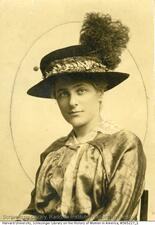
Pauline Goldmark
Pauline Goldmark was a social worker and activist, part of a group of women seeking the vote and reforms of the urban and industrial excesses of the early twentieth century. A pioneer in methods of social research central to reform efforts, Goldmark was indispensable to labor rights initiatives.
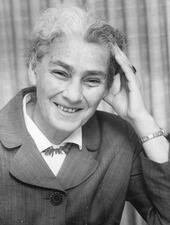
Elisabeth Goldschmidt
Elisabeth Goldschmidt was the founder of genetic studies as a research and teaching discipline at the Hebrew University of Jerusalem. She saw in the mass immigration of Jewish communities to Israel a unique opportunity for genetic research that might also contribute to the welfare of society, and in consequence founded the systematic research in human genetics and genetic counseling services in Israel.
Gertrude/Gego Goldschmidt
Gego, born Gertrude Goldschmidt, was one of Venezuela’s most creative and ingenious artists. Her sculptures have not only a sense of closure but also a boundlessness erasing any distance between viewer and artist and insisting on generating new perspectives.
Henriette Goldschmidt
At a time when women were banned from universities, Henriette Benas Goldschmidt championed women’s education as a crucial building block of a healthy society. She co-founded the General Association of German Women in 1865 and served on the association’s board until 1906, advocating women’s education for the betterment of society. In 1911 she created her crowning achievement, the Leipzig College for Women, Germany’s first women’s college.
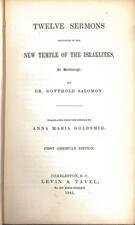
Anna Maria Goldsmid
Anna Maria Goldsmid was a Victorian Jewish advocate of women’s education and Jewish emancipation who made a name for herself as a translator, lecturer, philanthropist, and poet.
Edna Goldsmith
Edna Goldsmith was a driving force in the establishment of the Ohio Federation of Temple Sisterhoods. A founder of the federation, she served as its first president from 1918 to 1923 and then as honorary president until her death. Throughout her life, Goldsmith was active in welfare organizations, concentrating particularly in the educational field.
Luba Robin Goldsmith
In 1902, Luba Robin was the first woman to graduate from the school of medicine at the Western University of Pittsburgh (later the University of Pittsburgh). Her career combined private medical practice, teaching, writing, lecturing, and active participation in educational, social, and public health work.

Elyse Goldstein
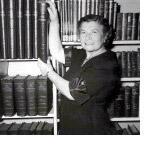
Fanny Goldstein
Librarian, social activist, and founder of National Jewish Book Week, Fanny Goldstein helped institutionalize national pride in ethnic and immigrant backgrounds through her work in libraries and settlement houses, and in her lectures and writing.
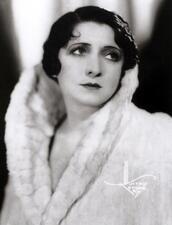
Jennie Goldstein
Jennie Goldstein was one of the foremost Yiddish theater tragediennes, beloved by the public and acclaimed by critics for her acting skills and outstanding voice. During the 1940s, as opportunities in the Yiddish theater waned, Goldstein transformed herself into a comedian.
Rebecca Fischel Goldstein
The quintessential rebbetzin [rabbi’s wife], Rebecca Fischel Goldstein was a prime mover in her husband’s drive to build the Institutional Synagogue and make it a center of Jewish life in Harlem. As a consummate volunteer leader, she strove to make women a dominant force in organized Jewish life.
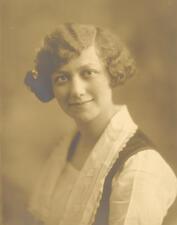
Rose (Berman) Goldstein
An early advocate of increased rights and responsibilities for women in Jewish life, Rose Goldstein was a prominent leader in the National Women’s League of the United Synagogue of America. She published a book detailing her relationship between scripture and her own self-understanding in 1972.

Shannie Goldstein
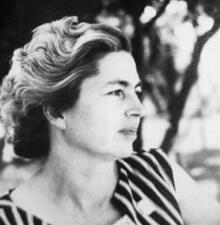
Shulamit Goldstein
A member of the underground militant group Irgun Zeva'i Le'ummi, Shulamit Goldstein became Israel’s first female pilot in the 1930s. Later in life, she also became a nursery school teacher, a poultry farmer, and a fiberglass manufacturer.


